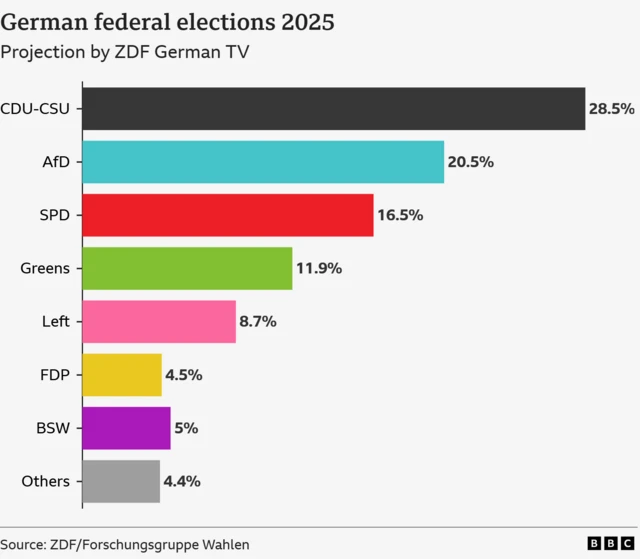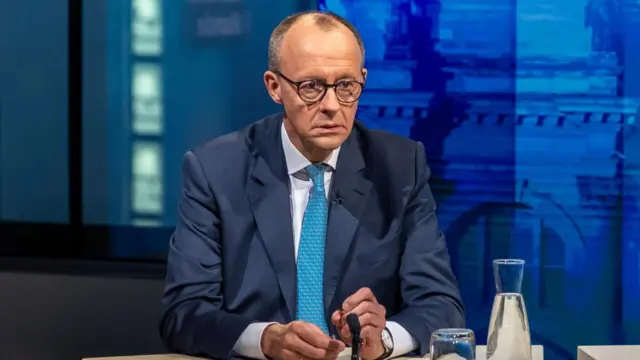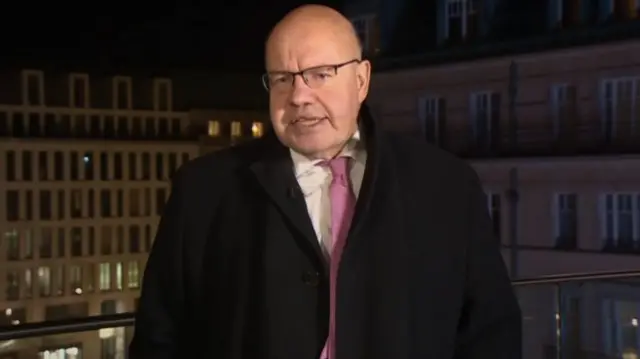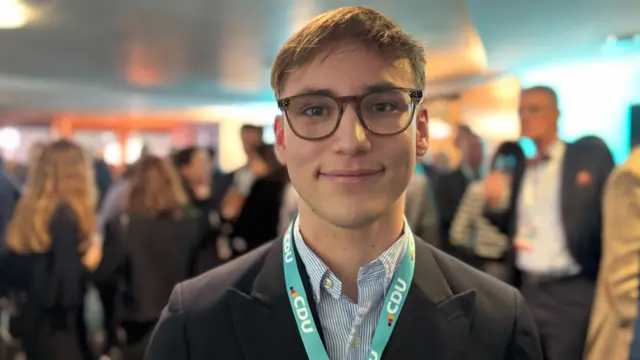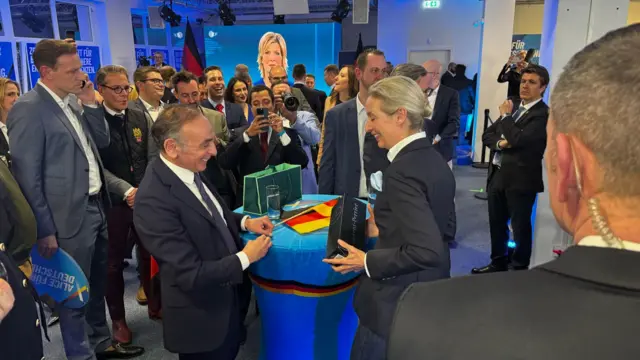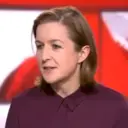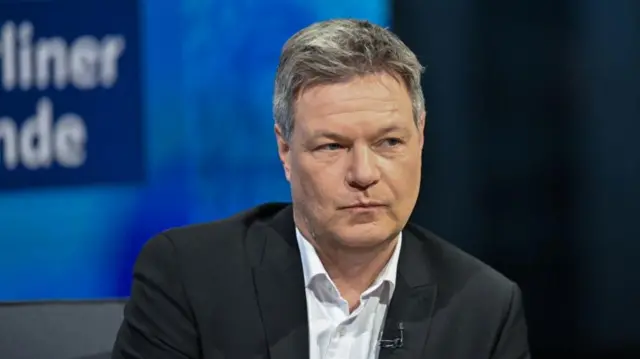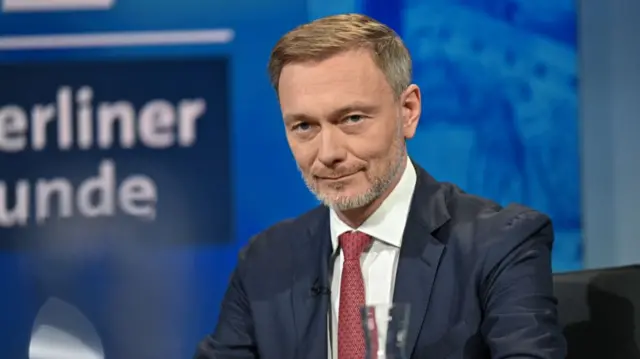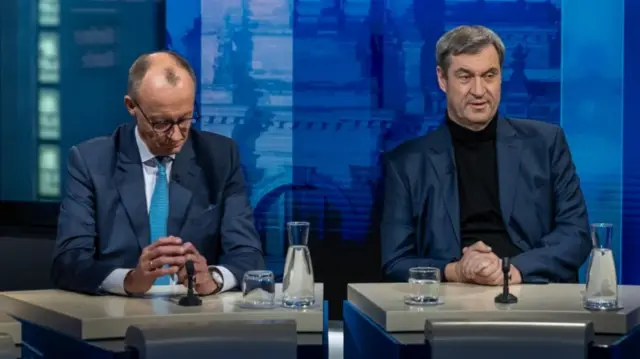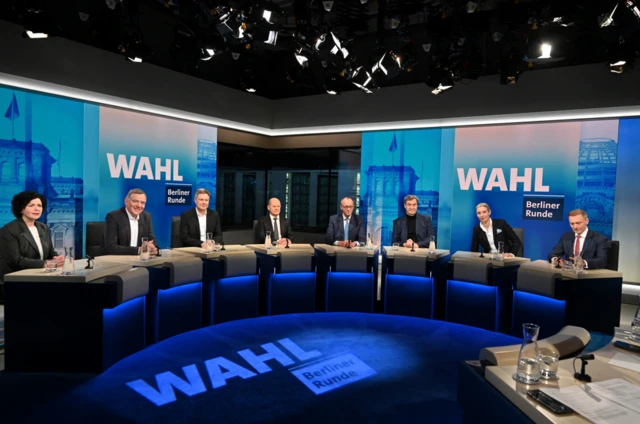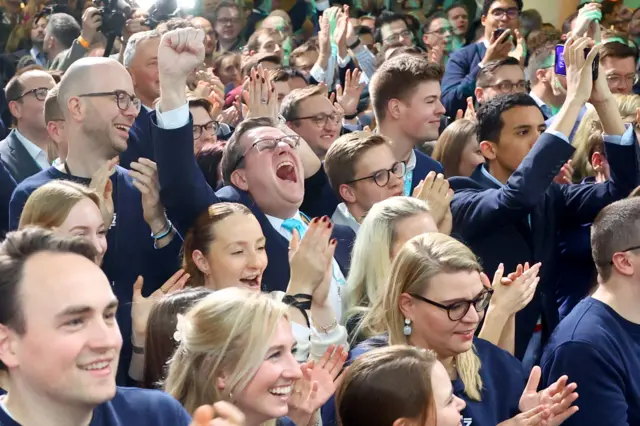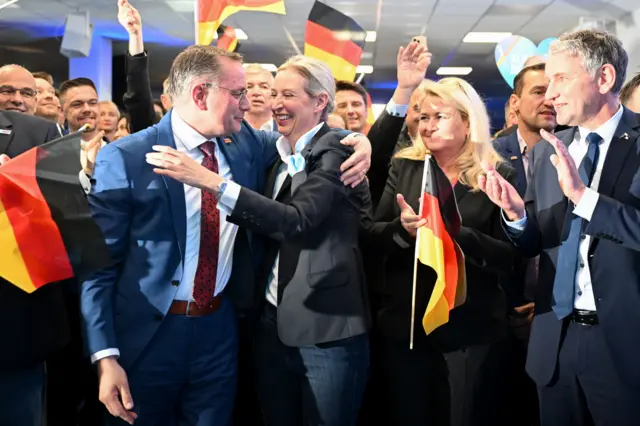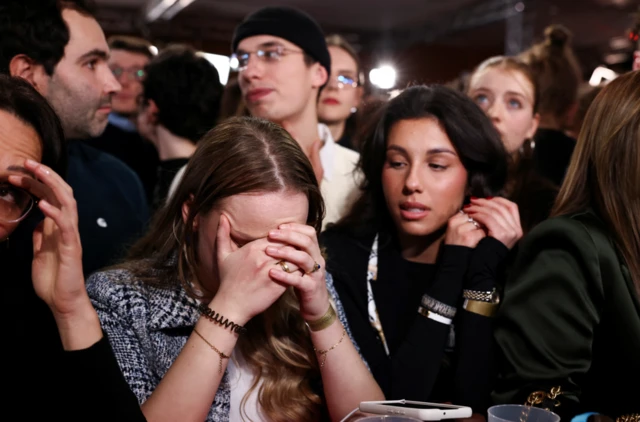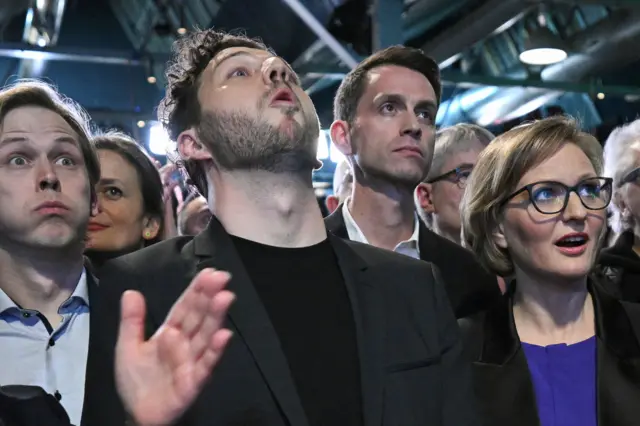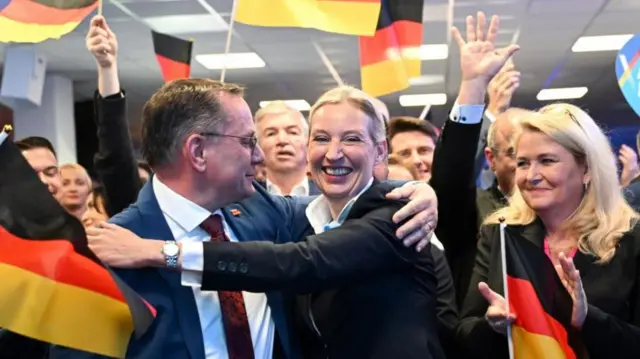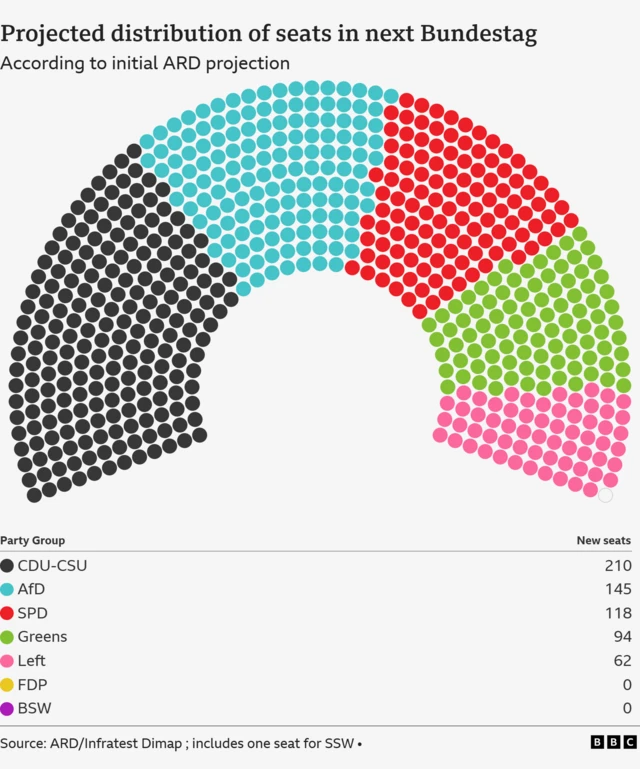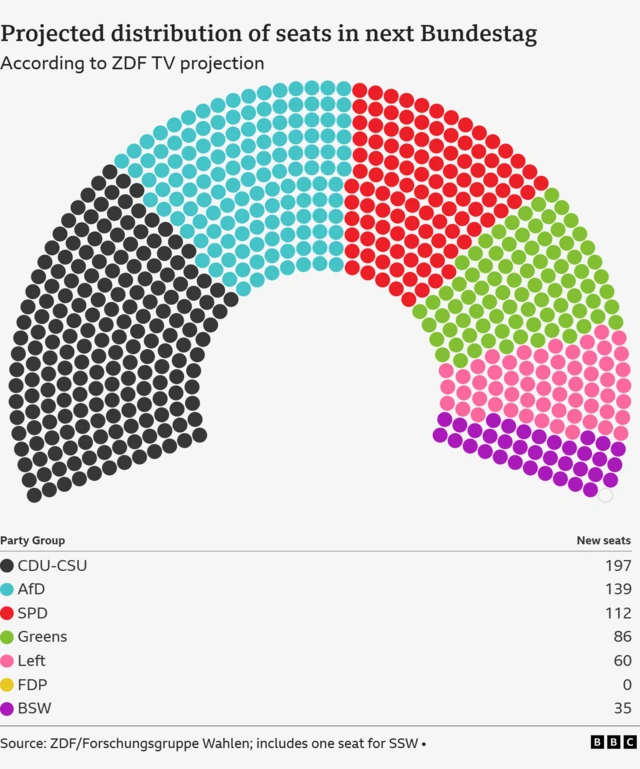Latest projections show CDU with 8-point leadpublished at 21:35 GMT 23 February
The CDU has won this election, but these latest projections from both big public broadcasters indicate that it's fallen short of the 30% it was expected to achieve.
Alternative for Germany (AfD) however now looks on course to break that 20% barrier - 10 points higher than it achieved only four years ago.
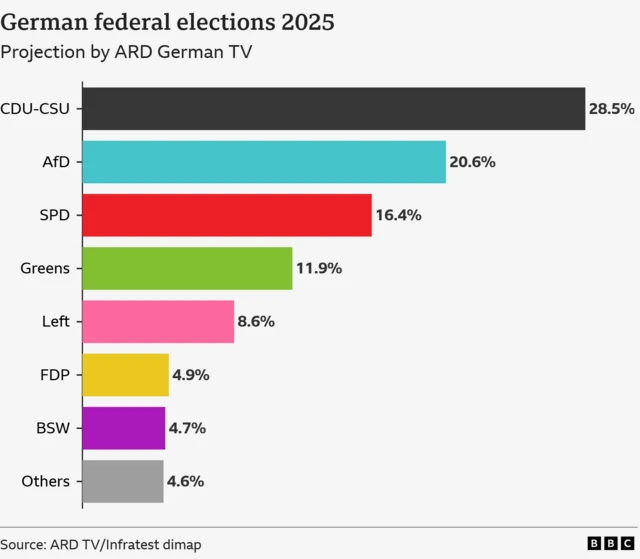
The big difference between the two projections from the public broadcasters is that ZDF suggests one of the smaller parties, the left-populist BSW, will squeak into parliament with 5% of the vote. That is yet to be confirmed.
Stick with us as we bring further developments and analysis.
